Minimax is a decision rule used in artificial intelligence, decision theory, game theory, statistics, and philosophy for minimizing the possible loss for a worst case scenario. When dealing with gains, it is referred to as "maximin" – to maximize the minimum gain. Originally formulated for several-player zero-sum game theory, covering both the cases where players take alternate moves and those where they make simultaneous moves, it has also been extended to more complex games and to general decision-making in the presence of uncertainty.

The Compact Disc-Interactive is a digital optical disc data storage format as well as a hardware platform, co-developed and marketed by Dutch company Philips and Japanese company Sony. It was created as an extension of CDDA and CD-ROM and specified in the Green Book specifications, co-developed by Philips and Sony, to combine audio, text and graphics. The two companies initially expected to impact the education/training, point of sale, and home entertainment industries, but the CD-i is largely remembered today for its video games.
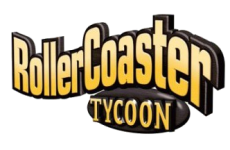
RollerCoaster Tycoon is a series of construction and management simulation games about building and managing an amusement park. Each game in the series challenges players with open-ended amusement park management and development, and allowing players to construct and customize their own unique roller coasters and other thrill rides.
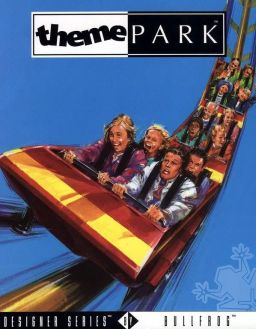
Theme Park is a construction and management simulation video game developed by Bullfrog Productions and published by Electronic Arts in 1994. The player designs and operates an amusement park, with the goal of making money and creating theme parks worldwide. The game is the first instalment in Bullfrog's Theme series and their Designer Series.

RollerCoaster Tycoon 3 is a 2004 construction and management simulation video game. It is the third installment in the RollerCoaster Tycoon series, and was developed by Frontier Developments and published by Atari Interactive. RollerCoaster Tycoon 3 places players in charge of managing amusement parks; rides can be built or demolished, terrain and scenery can be adjusted, and prices can be controlled to keep visitors or "peeps" happy.

RollerCoaster Tycoon 2 is a 2002 construction and management simulation game developed by Chris Sawyer and published by Infogrames Interactive. Released for Windows as the sequel to RollerCoaster Tycoon, the game simulates the management of amusement parks.
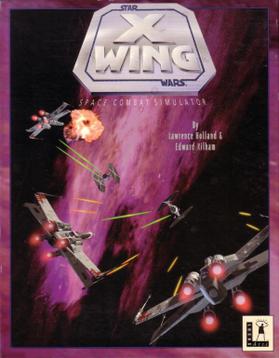
Star Wars: X-Wing is a space simulation video game, the first of the X-Wing combat flight simulation games series. The player's character flies starfighters, including the X-wing, for the Rebel Alliance. The narrative precedes and parallels the events of Star Wars Episode IV: A New Hope.
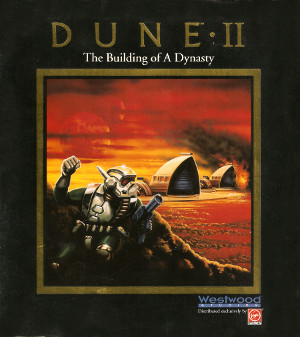
Dune II: The Building of a Dynasty is a 1992 real-time strategy game developed by Westwood Studios and published by Virgin Games. It serves as the sequel to Dune, which came out earlier that same year.

Theme Park World, also known as Theme Park 2, and in North America as Sim Theme Park, is a 1999 construction and management simulation game developed by Bullfrog Productions and released by Electronic Arts. The direct sequel to Theme Park, the player constructs and manages an amusement park with the aim of making profit and keeping visitors happy. Initially developed for Windows, it was ported to PlayStation and PlayStation 2, as well for Macintosh computers. The Mac version was published by Feral Interactive.
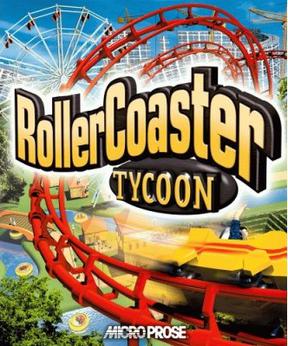
RollerCoaster Tycoon is a 1999 construction and management simulation video game developed by Chris Sawyer and published by Hasbro Interactive. It was released for Windows and was later ported to the Xbox by Frontier Developments in 2003. It is the first game in the RollerCoaster Tycoon series.

College Slam is a college basketball video game published by Acclaim. It was released for the Super NES, Genesis, Game Boy, Sega Saturn, PlayStation, and PC. It includes most major Division I colleges, but some, such as the University of Tennessee, the University of Notre Dame, and Mississippi State University, are not included. The player can play tournaments, a season, or a single game. Many gaming critics accused it of being a thinly veiled repackaging of NBA Jam.

Theme Park Inc. is a construction and management simulation video game. It is the sequel to Theme Park World (1999). Theme Park Inc. was developed by Bullfrog Productions and published by Electronic Arts. It was the last game to bear the Bullfrog logo before the company's merger with EA UK in 2004.

Ultimate Ride is a video game by Disney Interactive for Microsoft Windows in which players design, engineer and ride virtual roller coasters.
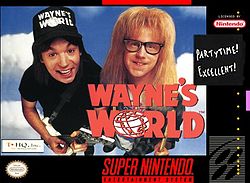
Wayne's World is an action video game based on the film of the same name and released in 1993 by THQ. Different versions of the game were released; the NES and Game Boy games were developed by Radical Entertainment and feature both protagonists Wayne and Garth as playable characters. The Super NES and Sega Mega Drive/Genesis games were developed by Gray Matter and feature only Wayne as a playable character.
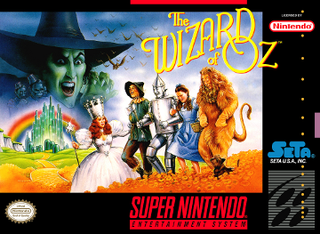
The Wizard of Oz is a 1993 platform video game released for the Super Nintendo Entertainment System and loosely based on the 1939 film The Wizard of Oz. Developed by Manley & Associates, it was published by SETA Corporation and released in North America in 1993 and in Europe in 1994. The player assumes the role of Dorothy, the Scarecrow, the Tin Man, or the Cowardly Lion in a series of levels containing hidden areas, mazes, and puzzles to bring Glinda's magic ruby slippers to the Wizard of Oz.

Gary Grigsby's Pacific War is a 1992 strategy wargame released by Strategic Simulations, Inc. It covers World War II in the Pacific between the Japanese Empire and the Allies, which include the United States, the British Empire, the Netherlands, Australia, New Zealand, Canada, the Philippines, and China. The main map of the game stretches from north of the Aleutians to southern New Zealand and Australia, and from the eastern coast of India to the West Coast of North America. It includes aircraft carrier operations, amphibious assaults, surface bombardments/engagements, strategic bombing, kamikazes, and the submarine war against naval and merchant shipping.
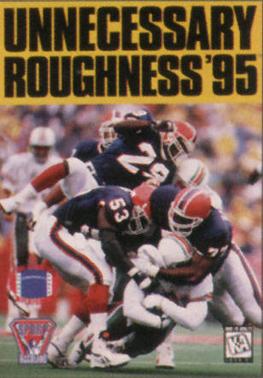
Unnecessary Roughness '95 is a 1994 American football video game for DOS and the Sega Genesis. Other entries in the series are Unnecessary Roughness (1993) and Unnecessary Roughness '96 (1996).
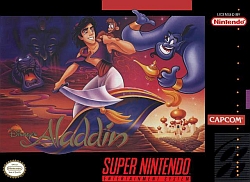
Disney's Aladdin is a 1993 platform game developed and published by Capcom for the Super Nintendo Entertainment System, based on the 1992 animated Disney film of the same name. Disney's Aladdin is a 2D side-scrolling video game in which the player controls Aladdin and his monkey Abu. It was designed by Shinji Mikami.

Links 386 Pro is a golf simulation sports game for MS-DOS released in 1992. It is part of the Links series, and was developed by Access Software as the follow-up to Links: The Challenge of Golf (1990). A Macintosh version, Links Pro, was released in 1994. An enhanced version called Links 386 CD was released for PC in 1995 that included audio comments by comedian Bobcat Goldthwait acting as the player's caddie, and an aerial flyby of each hole streamed from the game's CD-ROM. Re-branded versions of the game were also released for Microsoft Windows under the titles Microsoft Golf 2.0 (1994) and Microsoft Golf 3.0 (1996), part of the Microsoft Golf series.

Operation Crusader is a 1994 computer wargame developed by Atomic Games and published by Avalon Hill.



















